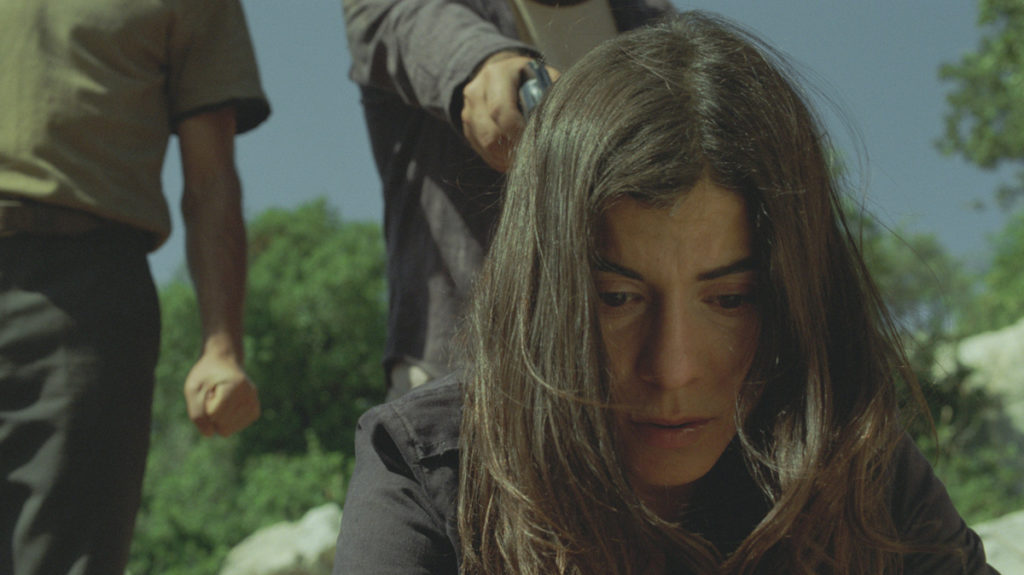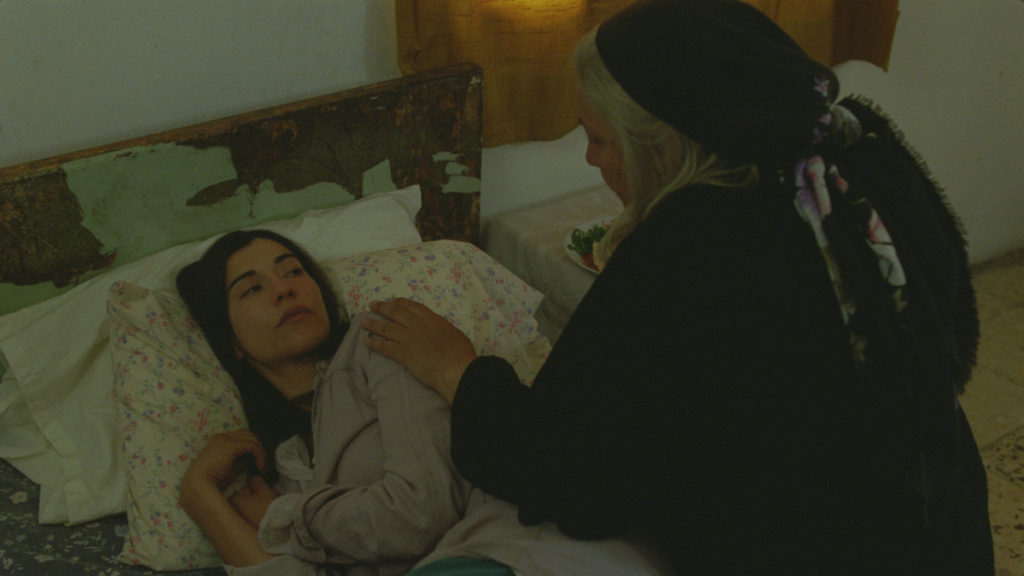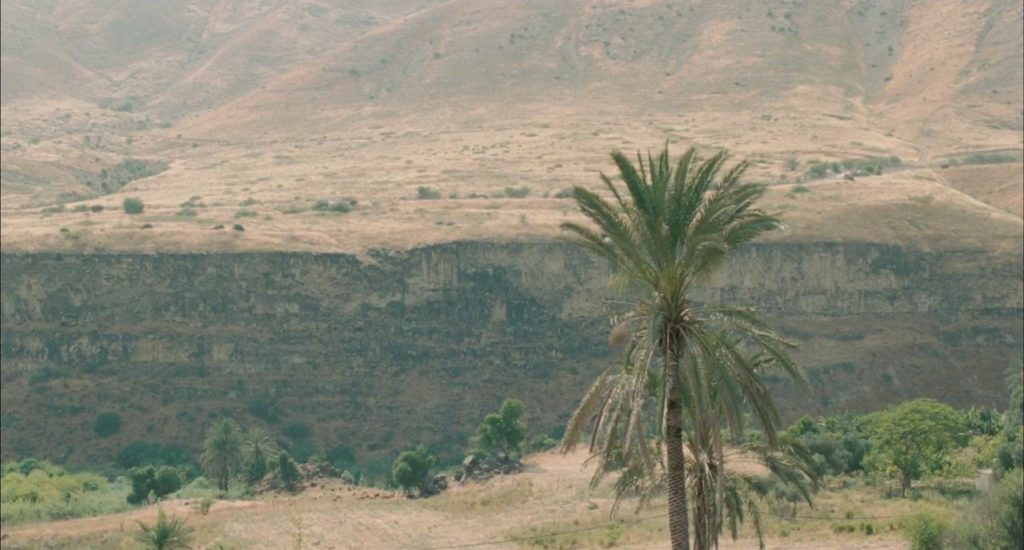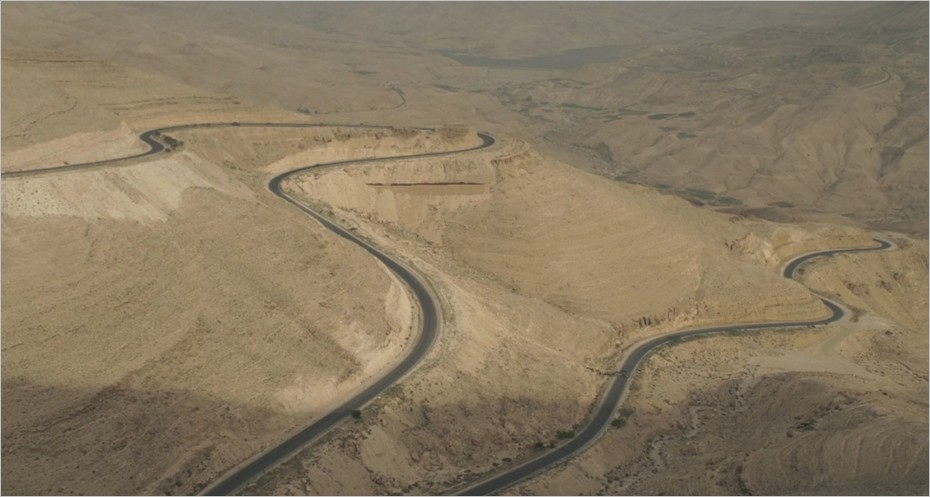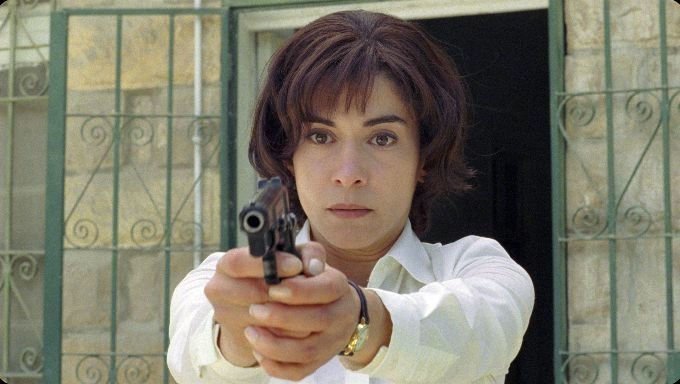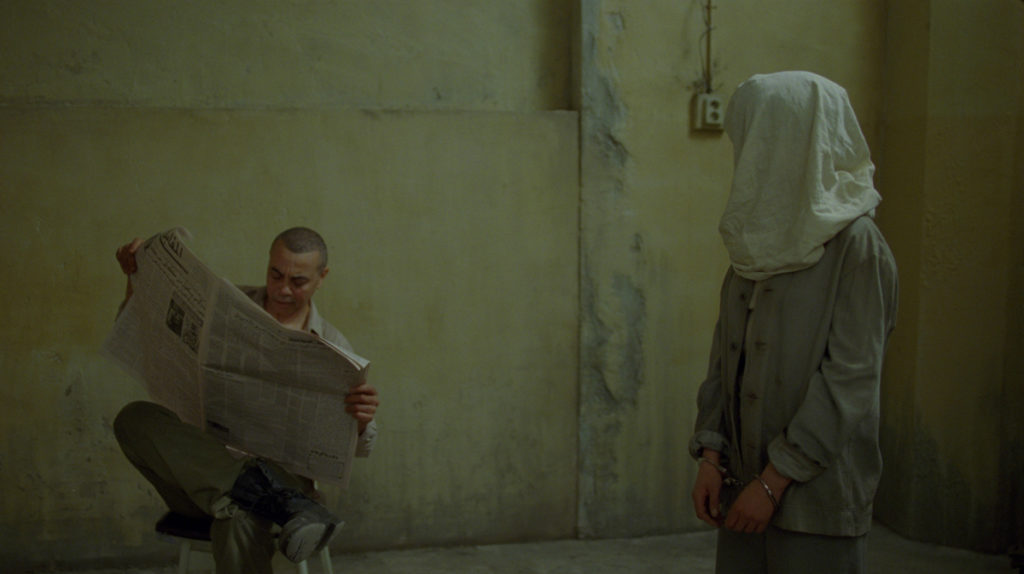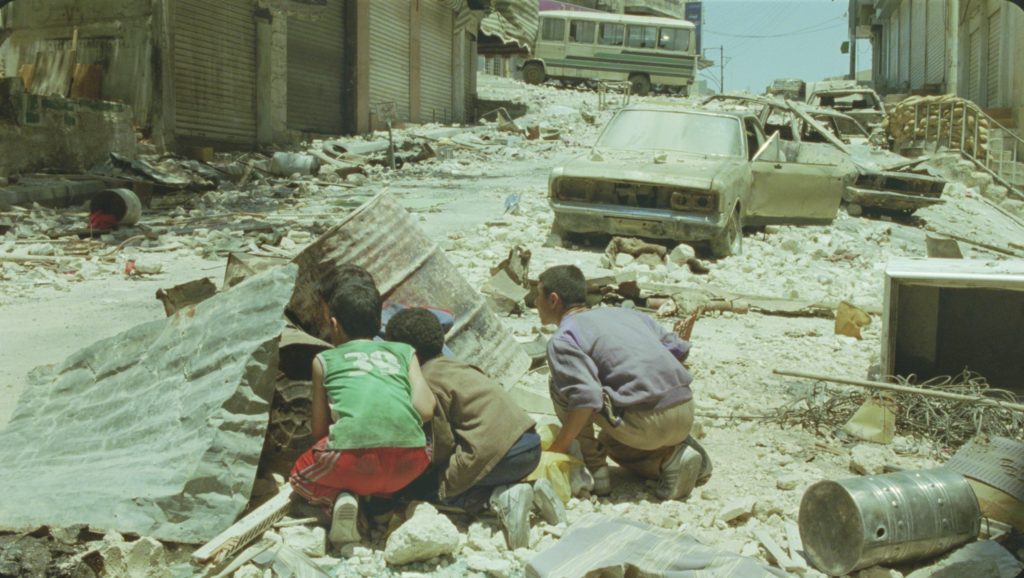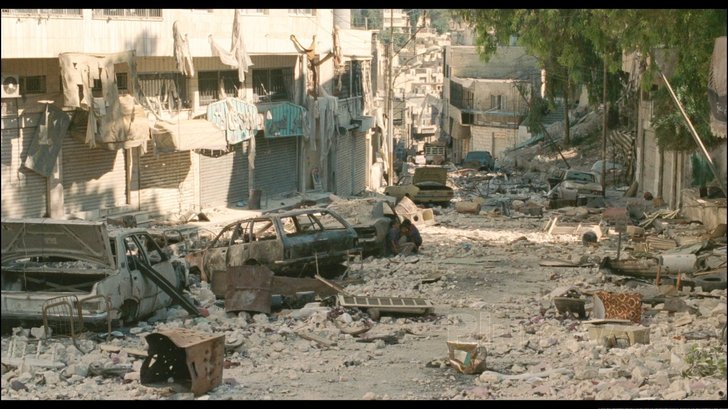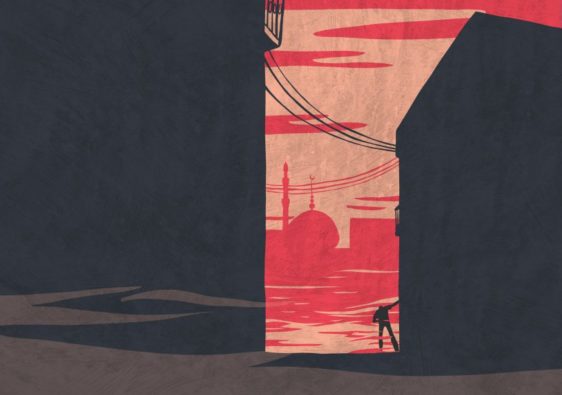Before its movie adaptation, Incendies was first a play written in 2003 by Quebec playwright and director Wajdi Mouawad, born in Lebanon in 1968. Director of the Théâtre national de la Colline in Paris since 2016, Incendies is the second play in his tetralogy entitled Le Sang des promesses.
After attending a performance of this play at Montreal’s Théâtre de Quat’Sous, Denis Villeneuve, the celebrated director of the phenomenon film Dune (2021), describes the shock he felt :
« I was hit in the face with the script and walked out of the theater on my knees. I wasn’t looking to do an adaptation at that time, but I knew immediately that I was going to make a movie out of it. »
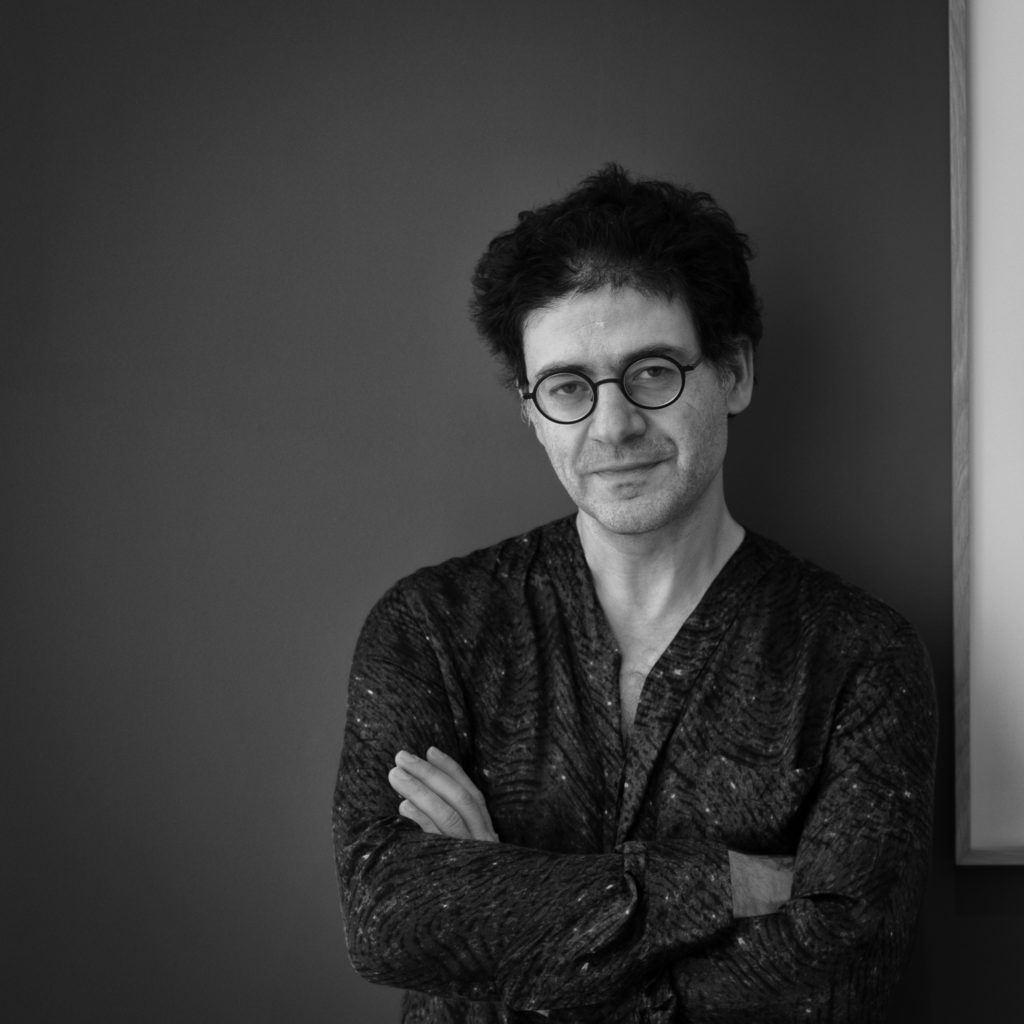
Wajdi Mouawad 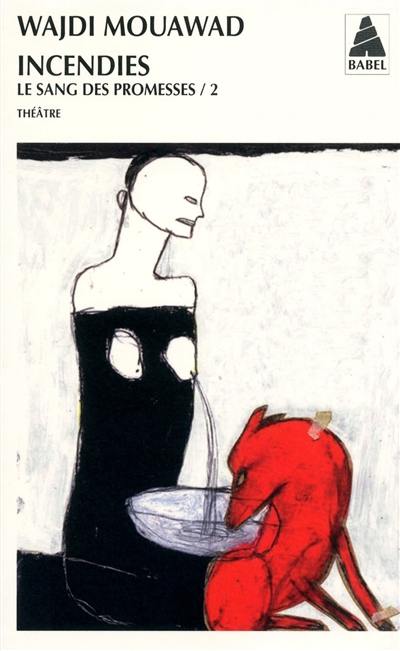
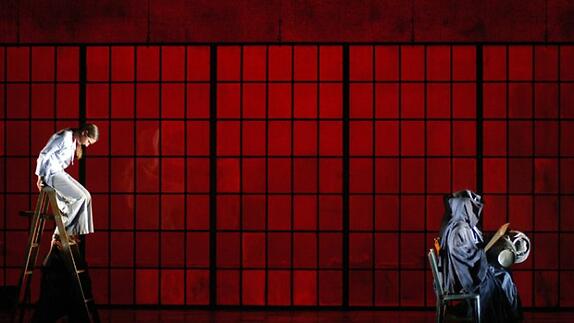
A few years later, in the spring of 2009, the Canadian director travelled to the heart of the Levant, to Jordan, to shoot the film Incendies with his crew. Released the following year, the film premiered at the 67th Venice Film Festival, was nominated for an Oscar for Best Foreign Language Film, and won numerous awards at prestigious international film festivals for Best Picture.
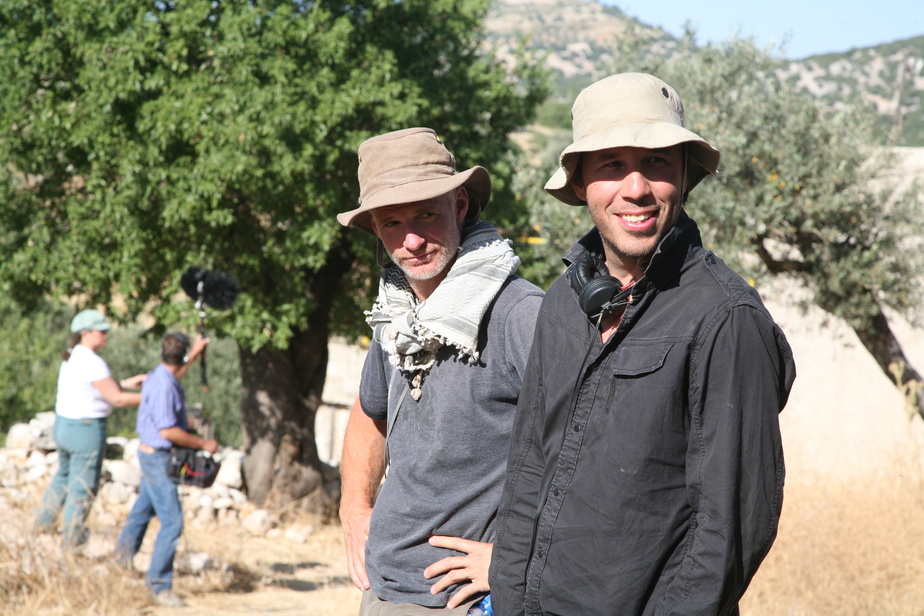
Denis Villeneuve on the set of Incendies 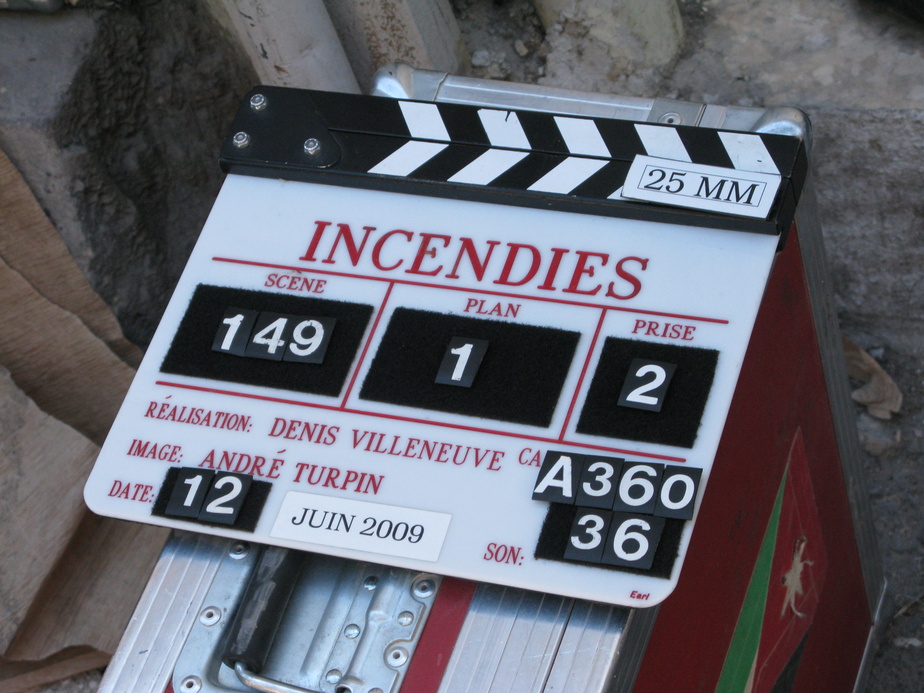
SYNOPSIS
Montreal, winter 2009. Notary Jean Lebel (Rémy Girard) receives in his office twins Jeanne (Mélissa Désormeaux-Poulin) and Simon Marwane (Maxim Gaudette) whose mother, Nawal Marwane (Lubna Azabal), died suddenly a few days earlier. Together, they discover a disconcerting will in which their mother entrusts them with a final request : to hand over two envelopes, one destined for a father they thought was dead, and the other for a brother whose existence they did not know until then.
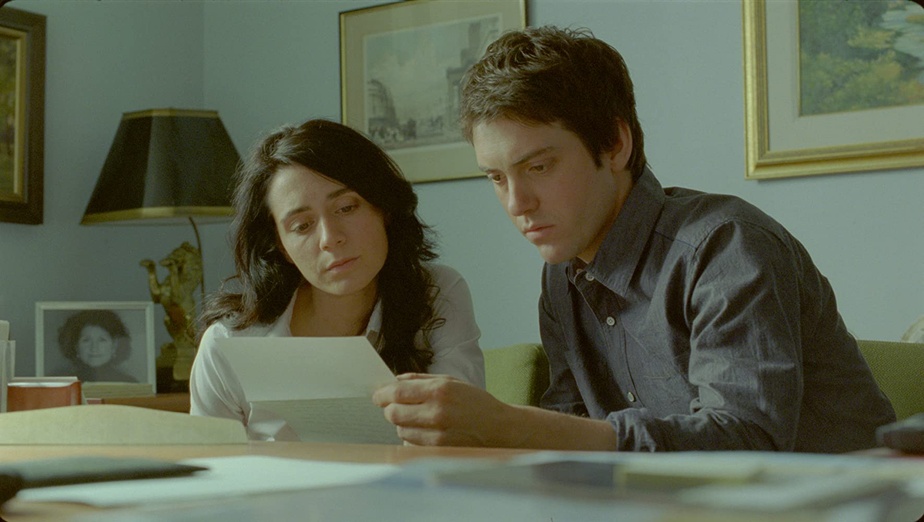
According to the last will and testament of the deceased, the delivery of these letters is the absolute condition for her to have a decent burial and for her spirit to rest in peace. « No epitaph for those who do not keep their promise« , Nawal wrote firmly in her will.
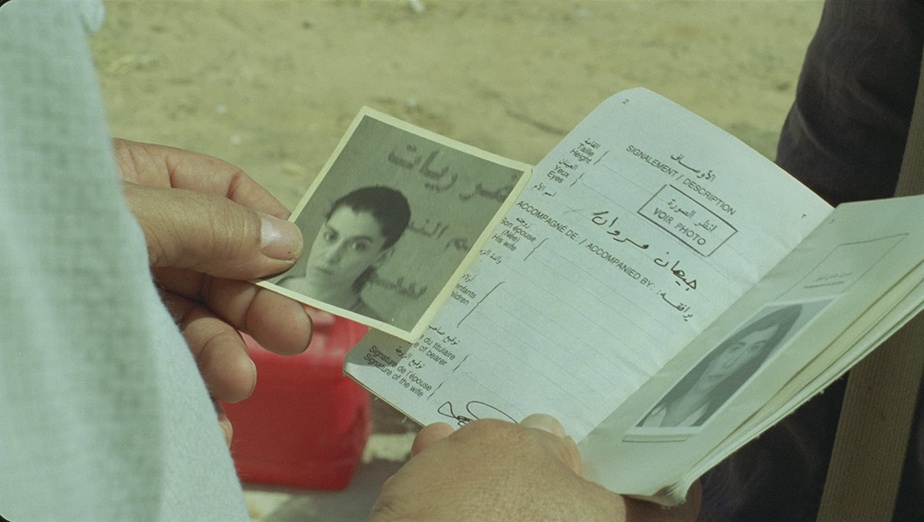
Convinced that she will find answers to her questions, Jeanne immediately agrees to leave for the Middle East, unlike her brother Simon, who is angry with this mother who has always been distant, and who had shut herself up in an unexplained silence the weeks before her death.
However, the weight of certain revelations will force Simon to join his sister on the land of their ancestors, allowing them to exhume together the enigmatic past of this mother whom they obviously never knew.
A MOVIE ABOUT WAR
The opening scene of Incendies immediately plunges us into the desert heat of a vast, isolated mountainous area dotted with a few palm trees. We see this scene from the window of a military camp, where armed soldiers are gathered in a room shaving the hair of young boys.
One of them particularly stands out from the rest of the group. He fixes the camera with his serious look, taking us to witness the scene we are looking at : the physical preparation of future child soldiers.
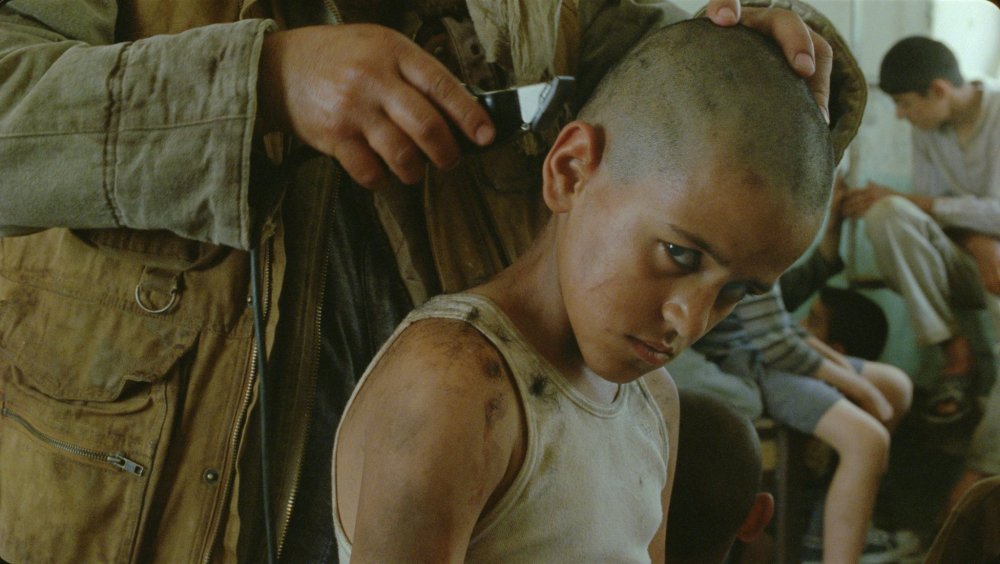
The dehumanized effect of this sequence is amplified by the long camera movements, which film in slow motion the dirty and swollen faces of these children who are stripped of their hair, as well as by the ghostly tone of the music You and Whose Army by Radiohead. The power of this opening scene lies in its raw and chilling realism, which reveals the main theme of the film : war.
When the twins leave for the Middle East to find traces of their mother’s past, they indeed discover that she lived and fled a region at war, driven by religious conflicts. As a Christian, they learn that she fell in love with a Muslim « refugee’s son« , Wahab, at a very young age and got pregnant.
From this forbidden love was born a son, whom she was forced to abandon in an orphanage. In order to identify him, she tattooed his right heel with three dots, and promised herself that she would find him one day, wherever he was, despite the war and the forced population movements.
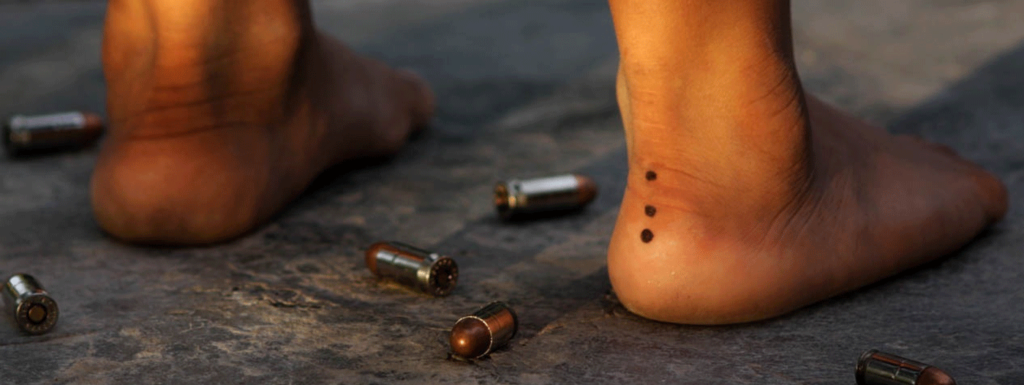
AN IMAGINARY GEOGRAPHICAL SPACE
But where does the story of Incendies take place ? In the Middle East, of course, but curiously the country is never explicitly named. Although the film has an important geopolitical dimension, through the languages spoken by the characters or the names of places displayed on the screen, the spectator does not know where the action takes place.
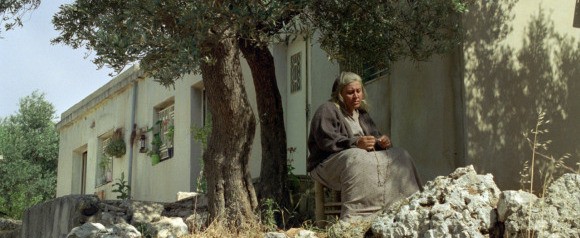
Thus, Nawal, Nihad, Chamseddine or the executioner Abu Tarek are all characters who speak in Arabic, with different accents depending on the region they come from. The twins, who grew up in Canada, are confronted to the barrier of this language that they do not master.
In addition, some places are mentioned by the characters or clearly displayed on the screen, such as « Daresh« , the town where Nawal comes from, « the South« , which is often mentioned in the film, or the prison of « Kfar Ryat« , where Nawal stayed for almost fifteen years. However, despite this willingness to mention specific places that seem plausible to the viewer, they are in fact fictional.
Although the country in question is never named, all these elements nevertheless evoke Lebanon and the civil war, which took place from 1975 to 1990.
« Beirut or Daresh ? This question haunted me throughout the writing of the script. I finally decided to do as the play did, and to set the film in an imaginary space in order to free the film from a political bias. »
Denis Villeneuve

Souha Bechara 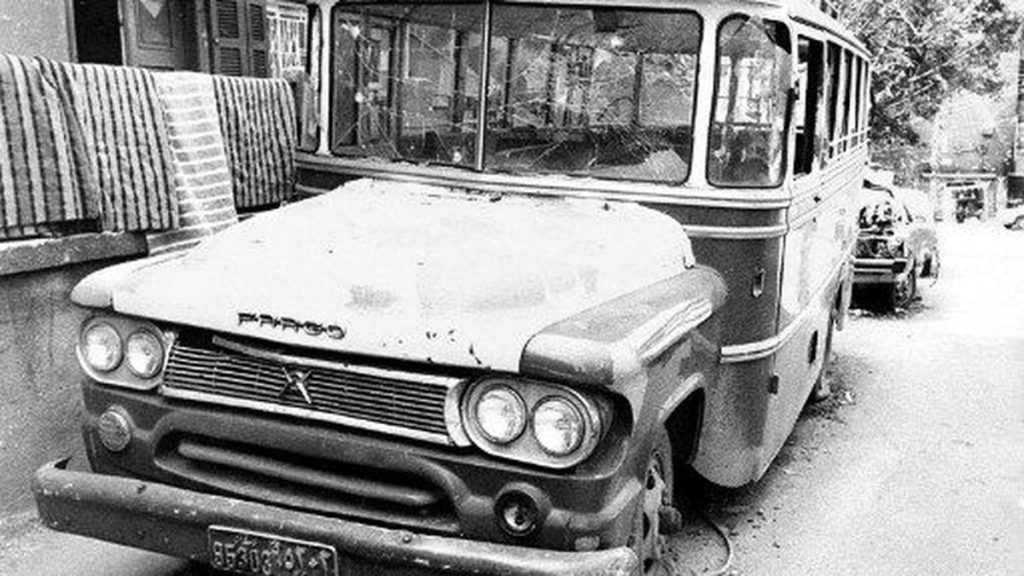
Lebanon, April 1975
The character of Nawal thus shares certain similarities with Lebanese resistance icon Souha Bechara, who spent ten years of her life – from 1988 to 1998 – in the Khiam detention and torture center, for having tried to assassinate General Antoine Lahd.
If, at the beginning of the film, young Nawal advocates for peace by writing articles in her uncle’s newspaper, she soon joins the resistance after witnessing the massacre of innocent people. She joins an anti-nationalist warlord, for whom she is given the mission of assassinating a high nationalist leader.
Other elements in the film invoke Lebanon, whether through the importance of religious conflicts between Muslims and Christians, the presence of Palestinian refugees who are beginning to weigh on the country in an implied way, or the tragic and unforgettable scene of the burned bus from which Nawal escapes, which is reminiscent of the massacre of Palestinian passengers by Christian militiamen in April 1975, and which served as a trigger to the Lebanese civil war.
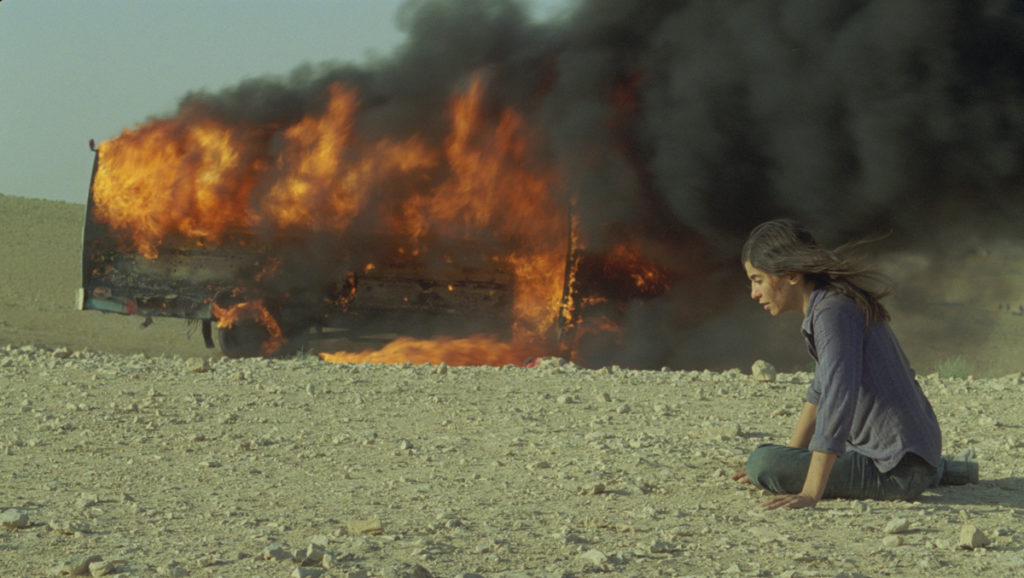
A METAPHOR FOR ALL COUNTRIES AT WAR
In many ways, as we have seen, war and its consequences are at the heart of Incendies. Denis Villeneuve portrays the issue of religious conflict and the violence of which human beings are capable, becoming in turn victims and executioners, like Nawal. He also exposes the idea of the anger generated by war, an anger that is transmitted from generation to generation, as we see with the case of the twins.
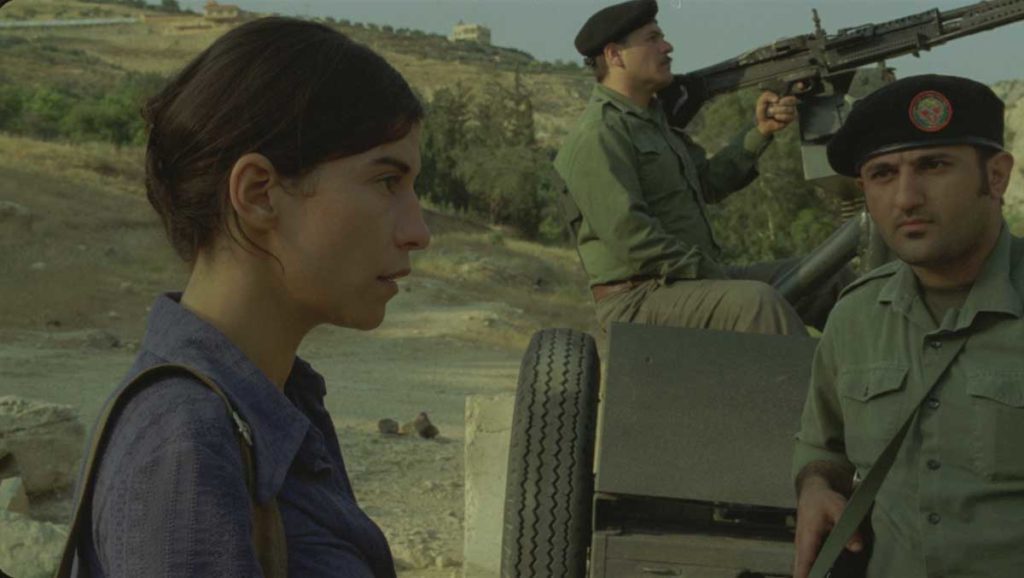
The director therefore sets his story in an invented country, a metaphor for all countries at war, with which everyone can identify. This is even more true since no side is taken in the film, giving it an apolitical dimension.
Also, in order to maintain a certain objectivity, Denis Villeneuve has chosen to approach the story from the point of view of the twins, both of whom are strangers to their Arab culture. This judicious choice is justified by the cultural distance that the director, also a stranger to this region, has himself with the reality of the Middle East, as shown in this excerpt :
« The hardest part was working in an environment that was not my own. I had been to the Middle East before, but I always felt like a total tourist – unlike Wajdi, who was born in Lebanon and fled with his family during the civil war. I think that’s why I approached the story from a family angle : like me, the twins are outsiders in this Arab culture. »
From the Making-of « Remembering the ashes, a look at Incendies« .
The apolitical aspect of the film also lies in the realism of the directing, which is devoid of any desire to magnify the war and instead emphasizes the point of view of the victims and what they are going through internally :
« Shot in Jordan and Quebec, my wish was to keep the staging as humble as possible. The goal was not to be breathtaking, nor to emphasize the scenes about the war. I wanted to show the point of view of the victims and not make the action exciting. It was important that there was a relationship between the landscapes and the inner feelings of the characters. I tried never to fall into the trap of exoticism. »
From the Making-of « Remembering the ashes, a look at Incendies«
This realism is further reinforced by Denis Villeneuve’s willingness to surround himself with a team of figurants who have themselves lived through the war, and fled their country. The film then takes on a certain accuracy, as the director explains :
On the set, I was lucky enough to be surrounded by people who had witnessed this kind of situation during armed conflicts, and it’s important for the film to be able to surround itself with these people. I particularly remember the morning we arrived on set when a street had been transformed into a war zone for a sequence with a sniper. Some of the Lebanese technicians had tears in their eyes and said that it was very similar to what they had experienced in Beirut in 1985. From then on, I was convinced that we were not out of our depth, but in touch with reality.
From the Making-of « Remembering the ashes, a look at Incendies«
• • •
Thus, although Incendies is obviously about politics, the strength and subtlety of this rich and intense film lies paradoxically in its apolitical dimension. The absence of geographical data, manicheism and bias tends rather to demonstrate the universality and timelessness of the drama of war.
Despite the complexity of the subject, Denis Villeneuve has managed to make a film with a carefully studied direction, whose visual and textual beauty remains throughout the film until the ending, shortly after the great forgiveness between the characters who have reached the end of their quest.
Incendies is a film of hope, which humbly advocates love and mercy in the face of hatred and anger. Hope is embodied by this last injunction that Nawal formulates to her children :
« We have been mired in anger for so long. You too will bequeath anger as a legacy. You have to break the thread. »
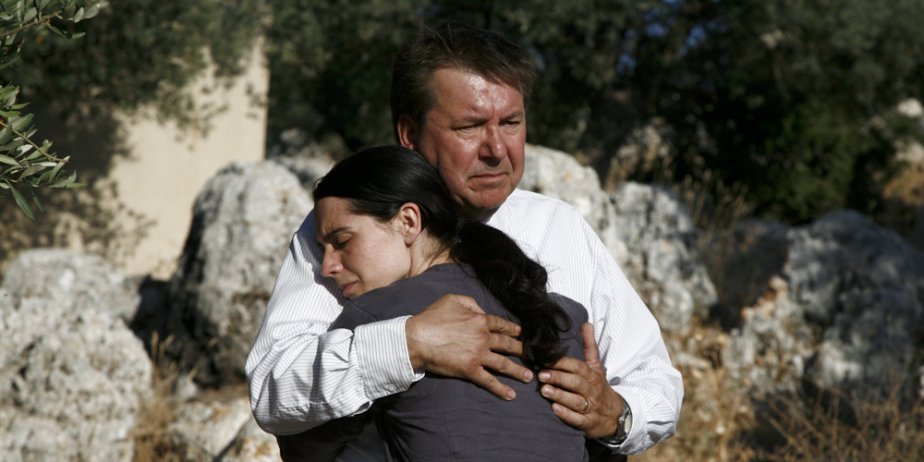
Watch the movie Incendies
Click on the image below !

